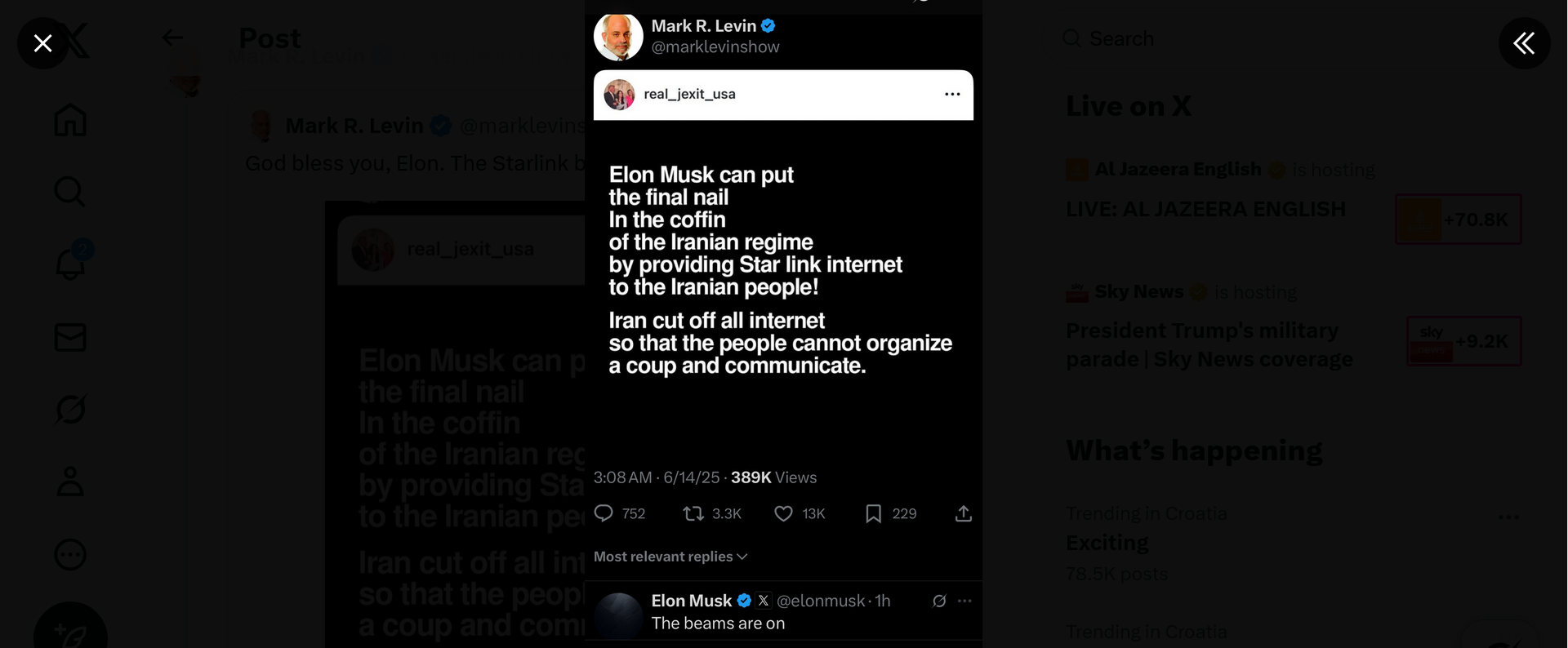Billionaire Elon Musk announced on social media platform X that he activated Starlink, a satellite communication system, in Iran after the authorities in Tehran cut off internet access to citizens amid Israeli attacks on Iran’s nuclear program. The Iranian Ministry of Communications confirmed temporary internet access restrictions due to the current situation, effectively blocking access to foreign information sources during the conflict between Tehran and Jerusalem. Musk’s move represents an attempt to provide Iranian citizens with access to information despite state-imposed restrictions.
Political Perspectives:
Left: Left-leaning sources emphasize the humanitarian aspect of Elon Musk’s activation of Starlink in Iran, highlighting the importance of internet access for citizens during government-imposed blackouts amid conflict. They often criticize the Iranian regime’s censorship and support efforts to bypass state control to ensure freedom of information.
Center: Centrist sources report the facts of the internet shutdown in Iran and Musk’s activation of Starlink, focusing on the geopolitical context of Israeli attacks on Iran’s nuclear facilities and the resulting information blackout. They present statements from all sides, including Iranian authorities and international reactions, aiming for balanced coverage.
Right: Right-leaning sources tend to emphasize the threat posed by Iran’s nuclear program and frame Musk’s activation of Starlink as a strategic move supporting freedom and resistance against oppressive regimes. They often highlight Israel’s right to defend itself and criticize Iran’s actions, portraying the internet blackout as a tool of authoritarian control.































